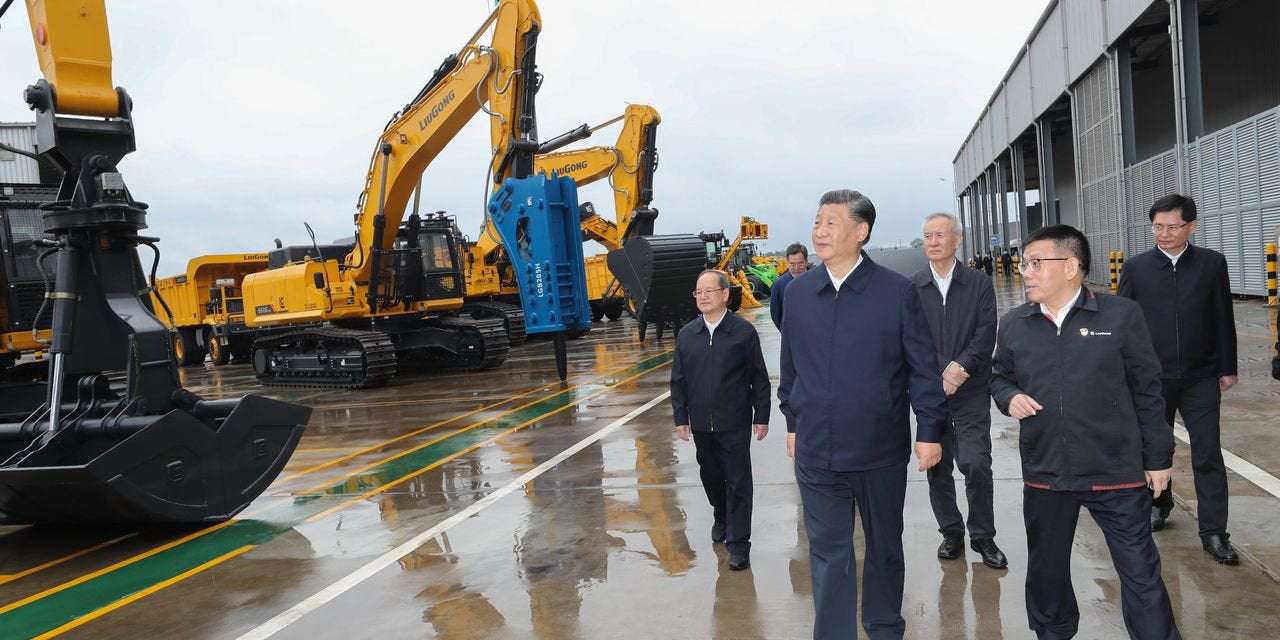To Western investors, China’s regulatory crackdown on superstar companies such as Alibaba Group Holding Ltd. , Tencent Holdings Ltd. and Didi Global Inc. must seem suicidal. How better to undercut growth than to kneecap some of the world’s most successful technology companies?
President Xi Jinping would beg to differ. In his estimation, technology comes in two varieties: nice to have, and need to have. Social media, e-commerce and other consumer internet companies are nice to have, but in his view national greatness doesn’t depend on having the world’s finest group chats or ride-sharing.
By contrast, Mr. Xi thinks the country needs to have state-of-the-art semiconductors, electric-car batteries, commercial aircraft and telecommunications equipment to retain China’s manufacturing prowess, avoid deindustrialization and achieve autonomy from foreign suppliers. So even as the Chinese Communist Party unleashes a multifront regulatory assault against consumer internet companies, it continues to shower subsidies, protection and “buy-Chinese” mandates on manufacturers.
Mr. Xi described these differential priorities in a speech published by the party journal Qiushi last year. He acknowledged the online economy was flourishing, and said China “must accelerate construction of the digital economy, digital society and digital government,” according to a translation by Georgetown University-affiliated researchers. “At the same time, it must be recognized that the real economy is the foundation, and the various manufacturing industries cannot be abandoned.”
Historically, as most countries develop, manufacturing displaces agriculture and then services displace manufacturing. In recent decades manufacturing’s share of gross domestic product in most-advanced economies has declined, especially in the U.S. and Britain, which have seen swaths of factory employment migrate overseas, especially to China.

yontonhaswonton on September 1st, 2021 at 05:59 UTC »
Great article, but how will this(For lack of a better term) "jive" with China's decreasing working(15-64) population. And how will the US solve its problem of the Innovation trap?
sqsbb on September 1st, 2021 at 05:22 UTC »
I think China is making the right play here. So many talented people in the US rn are working on increasing ad click through rates because its the most profitable undertaking they can engage in. Is that a good thing for american strategic interests? Probably not.
I typically think of planned economies as having mismanaged incentives like the USSR, but even free markets can.
We’ve incentivized critical manufacturing to go abroad and the most valuable human capital to sell ads.
ParthianCavalryMan on September 1st, 2021 at 03:57 UTC »
SS: The article details how the Chinese leadership is intent on not following the western trend of moving to a mostly service based economy and deindustrializing
It starts with mentioning the personal views of Xi
The article then details the precedent of deindustrialization set by developed economies like the United States and United Kingdom. It then talks about the intersection of the political and economics of this matter
It also talks about the mindset of Chinese leaders
The article ends with
Personal opinion: This indeed is something that is worth praising the Chinese political leadership over in how they have managed to tame "capitalist" economics to serve state interests. Deindustrialization through outsourcing is principal source of the weakening of American primacy (and conversely of the rise of China). It is famously stated that the CCP keenly studies the mistakes that led to decline and dissolution of the USSR, it seems they are also studying Western mistakes.